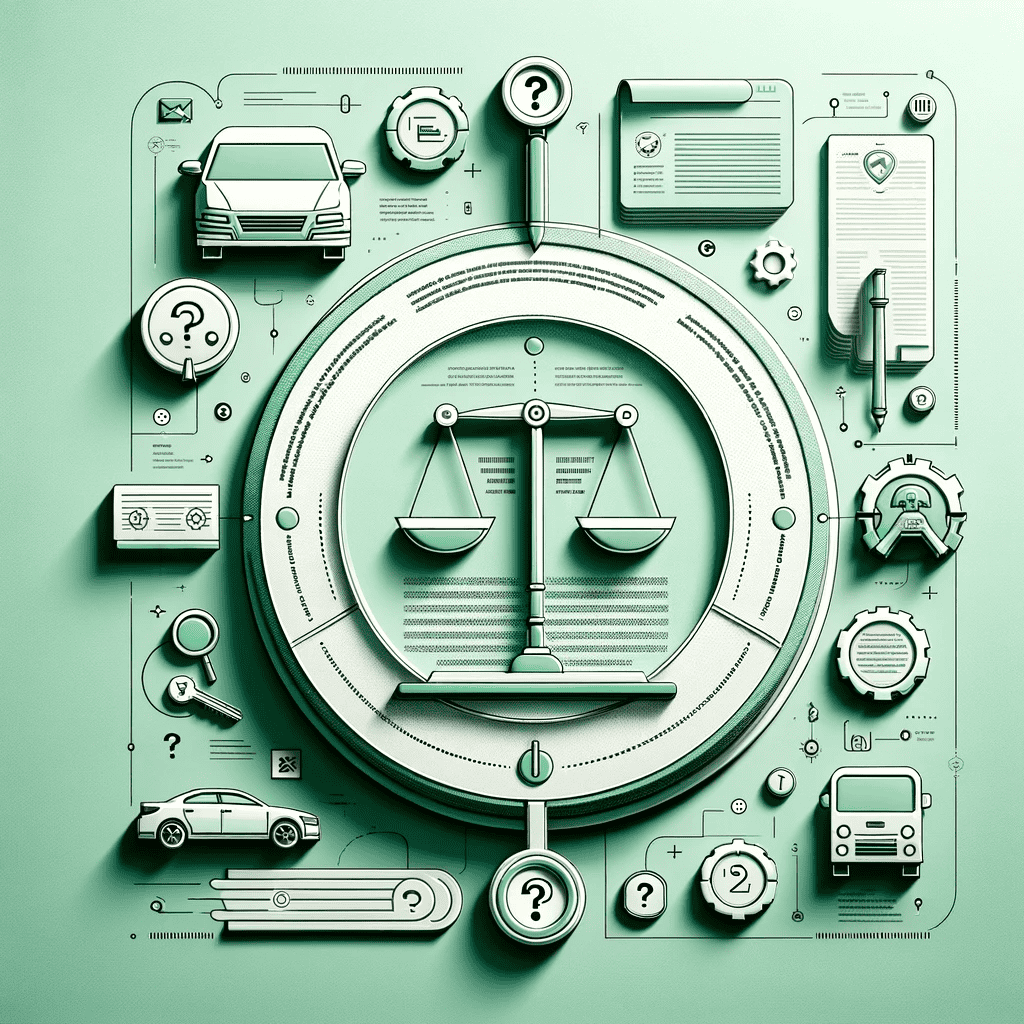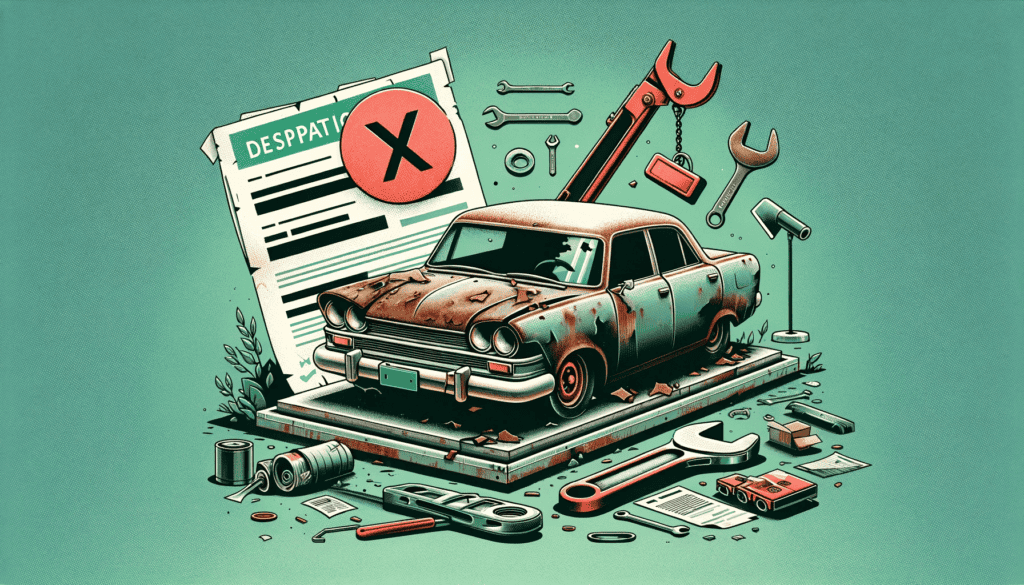Table of Contents
What is a Car title?
A car title is an official document that proves who owns a vehicle. Sometimes called ownership papers, a certificate of title, or even a ‘pink slip’ because of its traditional color, this document is issued by the state’s Department of Motor Vehicles (DMV). Whenever a car is sold, this title is handed over to the new owner as part of the sale.
There are a few different kinds of car titles. A ‘clean title’ is usually given to new cars or those that haven’t been in serious accidents. On the other hand, a car that’s been badly damaged in an accident and considered a total loss by an insurance company gets a ‘salvage title,’ meaning it’s not worth fixing. Cars that have been extensively repaired or modified are given ‘rebuilt’ or ‘reconstructed’ titles. These titles let potential buyers know if the car has had major work or repairs.
It’s generally illegal to sell or scrap a car without its title in most places. If you’re looking to dispose of an old car without a title, it’s best to check with your local DMV for legal ways to do so.
Legal Considerations for Scrapping a Car Without a Title

It’s generally possible to scrap a car even if you don’t have the title, though there are some exceptions and varying procedures depending on where you live. Often, it’s not as difficult as it might seem to sell or scrap a car without a title. In many states, the Department of Motor Vehicles (DMV) can issue a replacement title—whether it’s a clean title or a salvage title—depending on the vehicle’s condition, usually for a fee. Having a title proves to potential buyers or recyclers that you legally own the car and have the right to sell it.
If a car lacks a title, it can still be sold to recycling companies, auto dealerships, auto repair firms, wreckers, and salvage businesses. These entities often use the Vehicle Identification Number (VIN) to secure a salvage permit, a process that can save money. Auto repair firms might buy cars without titles for parts, or to refurbish, modify, or dismantle them. Wreckers and salvage companies often offer good prices for non-roadworthy cars and typically handle the necessary paperwork for obtaining a salvage title. The process is even simpler if you have the vehicle’s registration or bill of sale.
You can also legally dispose of a car without a title. Many junkyards will pay cash for a non-operational car and provide towing services. Since these vehicles are often in poor condition and not intended for road use again, they’re usually bought for parts or scrap metal. These junkyards will still check for a title using the VIN.
However, laws can vary by state. For example, California requires obtaining a new title to sell a car for parts. In Florida, under certain conditions, you can sell a junk car without the title. In Texas, disposing of a car without a title may require a power of attorney, especially if the owner is deceased or missing the title. This is often the case in major cities like Houston and Dallas.
To find a junkyard willing to buy a car without a title, it’s best to contact local salvage yards. You can provide necessary information and photos of your vehicle, and use online resources to get appraisals from garages that might be interested in purchasing your car.
How Much Will I Get For Scrapping My Car? Market Research
The amount you can expect to receive for scrapping your car varies based on several factors including the vehicle’s weight, composition, condition, and current market prices for junk cars. As of 2023, the average scrap car prices in the USA are about $180 per ton. This can translate to roughly $270 for mid-size vehicles that weigh about 1.5 tons. Larger vehicles, such as SUVs, can fetch around $450, and trucks may bring about $540. However, these prices are subject to change based on location and market trends.
The value of your scrap car is also influenced by the global market prices of metals like steel and aluminum, which form a significant part of a car’s scrap value. The total weight and specific metal composition of your vehicle are key factors as well. Heavier vehicles and those with a higher percentage of valuable metals offer more scrap value. Additionally, certain car parts, such as catalytic converters containing precious metals like platinum, palladium, and rhodium, can be highly lucrative when scrapped separately. The overall condition of salvageable parts like engines, transmissions, and electronic components also affects the value. The ease of dismantling the car and the costs associated with transporting these parts to scrapyards or buyers can influence the net returns. Finally, the market demand for specific parts of certain makes and models can greatly influence scrap value.
It’s important to note that regional differences in scrap metal market prices can affect the amount you can get for your vehicle. Areas with a higher population density and a greater need for used auto parts usually pay a better price for scrapped cars. Utilizing online tools like scrap car value calculators can help you get a quick estimate of your car’s scrap value. These calculators consider factors such as your car’s make, model, year, condition, or Vehicle Identification Number, along with the current market conditions.
Another source suggests that the average scrap car price as of 2023 could be around $698. This figure, however, could vary widely based on the car’s make, model, year, and condition. Factors such as whether the vehicle has all four tires, if it’s drivable, and if it has any body damage can influence its scrap value. It’s advisable to reach out to multiple junkyards in your area and compare their offers, as car scrap prices can vary. Before heading to the junkyard, finding a nearby weigh station and measuring your car’s weight accurately can provide a solid starting point for negotiating scrap car prices per ton.
YourCarIntoCash is recognized as a reliable junk car buyer, and they offer services that might be beneficial for those looking to sell their scrap vehicles. As a reputed player in the market, they typically provide competitive offers for junk cars, making the selling process smoother and more convenient for car owners.
Ways to scrap a car without a title
Scrapping a car without a title involves a few different approaches, depending on your state’s regulations and the specifics of your situation. Here’s a summarized guide:
- Obtaining a New Title: If the car belongs to you, visit your local DMV with your ID and the vehicle’s registration (even if it’s expired). The DMV can issue a new title, which is also possible if you’re not the original owner. However, you’ll need to provide additional details like the bill of sale, odometer disclosure statement, and any loan information if the vehicle was financed.
- Consulting a Junkyard: Contact local junkyards to understand their specific requirements for accepting a car without a title. Each junkyard may have different documentation requirements, such as expired registration, bill of sale, or just a valid ID and driver’s license. The requirements can vary by state, so it’s essential to confirm beforehand.
- Finding Title-Flexible Junkyards: Research local junkyards that accept cars without titles. Most junkyards will state clearly whether they accept vehicles without titles for scrap or junking. If this information isn’t directly advertised, they will usually list the conditions under which they accept a car without a title.
These steps provide options for legally scrapping a vehicle even when the title is missing, ensuring compliance with state laws and regulations.


